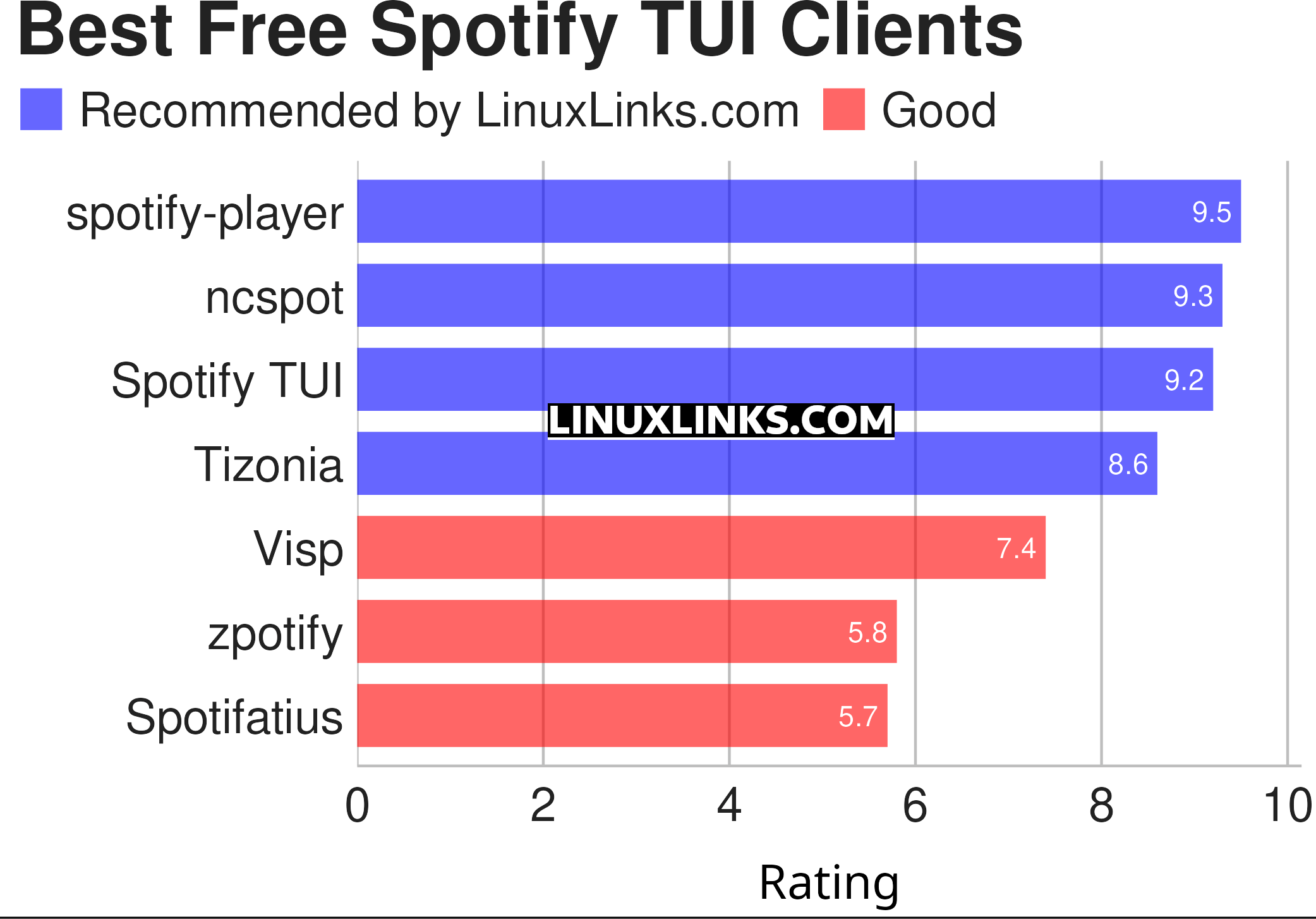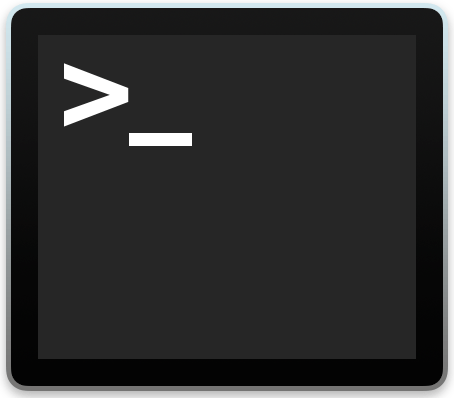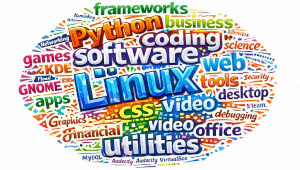First launched in 2008, Spotify is a digital music streaming service with a freemium business model. You can listen to a huge library of music and podcasts for no charge if you are prepared to have shuffle play (with limited skips), interrupted listening and lower audio bitrate. Alternatively, there’s the option of Spotify Premium. In the UK, a subscription costs £11.99 per month for an individual account. This gives you streaming music at 320 kbps, the ability to download music, and full functionality.
Spotify provide a semi-official app for the service which uses Chromium Embedded Framework (think bloated memory footprint). But third-party clients are available for Spotify Premium users. Spotify blocks API access to their audio for non-premium members.
This article recommends our favourite text-based Spotify clients. Here’s our verdict summarized in a legendary Linuxlinks-style chart.

Let’s explore the 7 clients at hand. We have written detailed reviews for some of these clients.
| Text-Based Spotify Clients | |
|---|---|
| spotify-player | Rust-based client using librespot library to make an integrated Spotify client |
| ncspot | Command-line Spotify client that’s written in Rust |
| Spotify TUI | Another client that uses Rust. This client requires spotifyd for the streaming |
| Tizonia | Cloud music player for the Linux terminal with Spotify support |
| Visp | Vi-like Spotify client |
| zpotify | CLI for controlling Spotify playback |
| Spotifatius | Simple Spotify CLI |
These clients require a Spotify Premium account.
 A console application is computer software which can be used with a text-only computer interface, the command line interface, or a text-based interface included within a graphical user interface operating system, such as a terminal emulator (such as GNOME Terminal or Terminator). Whereas a graphical user interface application generally involves using the mouse and keyboard (or touch control), with a console application the primary (and often only) input method is the keyboard. Many console applications are command line tools, but there is a wealth of software that has a text-based user interface making use of ncurses, a library which allow programmers to write text-based user interfaces.
A console application is computer software which can be used with a text-only computer interface, the command line interface, or a text-based interface included within a graphical user interface operating system, such as a terminal emulator (such as GNOME Terminal or Terminator). Whereas a graphical user interface application generally involves using the mouse and keyboard (or touch control), with a console application the primary (and often only) input method is the keyboard. Many console applications are command line tools, but there is a wealth of software that has a text-based user interface making use of ncurses, a library which allow programmers to write text-based user interfaces.
CLI applications are light on system resources (very useful on low specified machines), are often faster and more efficient than their graphical counterparts, they do not stop working when X is restarted, and are perfect for scripting purposes. When designed well, CLI applications offer a surprisingly improvement in productivity. The applications are leaner, faster, easier to maintain, and remove the need to have installed a whole raft of libraries.
 Explore our comprehensive directory of recommended free and open source software. Our carefully curated collection spans every major software category. Explore our comprehensive directory of recommended free and open source software. Our carefully curated collection spans every major software category.This directory is part of our ongoing series of informative articles for Linux enthusiasts. It features hundreds of detailed reviews, along with open source alternatives to proprietary solutions from major corporations such as Google, Microsoft, Apple, Adobe, IBM, Cisco, Oracle, and Autodesk. You’ll also find interesting projects to try, hardware coverage, free programming books and tutorials, and much more. Know a useful open source Linux program that we haven’t covered yet? Let us know by completing this form. |

